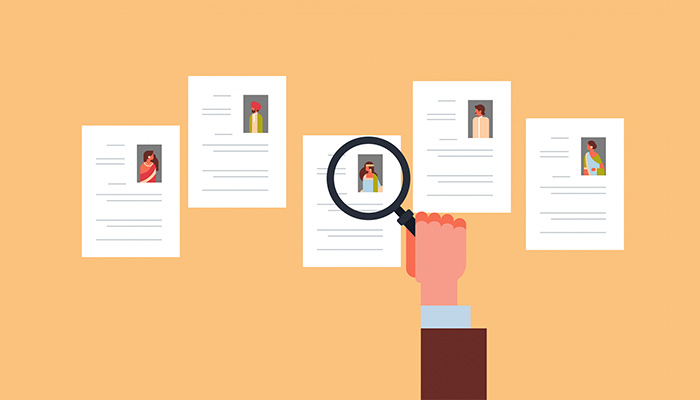The Widespread Use of AI-Powered Hiring Tools
AI (Artificial Intelligence)-powered algorithms and software are used by more small, medium, and large businesses in their HR (Human Resources) processes.
Whether it’s for recruitment, where AI-driven software “parses” through a large number of resumes quickly and finds the best (or at least the best based on how the algorithms are written) possible match, or for training and development, where AI-driven learning and tests are made available to employees in real-time, companies of all sizes and in all fields are using these technologies more and more.
It would not be an exaggeration to say that the entire End to End HR Value Chain is being automated using both older technologies and newer, cutting-edge software and tools powered by artificial intelligence.
The Good Things About Using AI in Hiring and Choosing
There are some obvious benefits to using AI-powered tools for HR processes, such as the efficiencies from economies of scale and the synergies that come from automating the HR value chain. However, there are also some drawbacks since technology, and its use remove or reduce the “human element” that is important in a business function like HR, where decisions are made based on intuition and gut feeling.
Using AI for HR processes has several advantages. In the past, corporations and their HR departments were limited by the sheer number of resumes in their inboxes daily and by the number of people who responded to targeted ads they would put out in different media.
Many online job sites offer a paid service called “resume blasting” that lets applicants send their resumes to all possible employers. This made it easier for people to “bombard” the employer with thousands of resumes from just about anyone and everyone from anywhere and everywhere.
In this case, the companies that received so many resumes would sort through them by keyword and, with the help of the job sites mentioned above, find the best matches.
Anyone can see that this process is not only time-consuming but also less than ideal since there is a high chance that the wrong resumes would be chosen while high-quality applicants who deserved to be shortlisted were not even considered.
AI-driven software is helpful for corporations in this case because their HR or Recruitment teams can “feed” all the resumes into it and let it sort them.
This practice saves time and lets the HR team get as specific as possible and find a match that is as close as possible.
So, using AI in the hiring process brings many benefits to employers regarding scale and synergies. What’s more, the chance that dishonest candidates with ties to compromised “insiders” in firms could get in through a “back door” was cut down, if not eliminated.
What the recent case of Amazon’s AI tool for hiring workers should teach us
Still, some bad things about using AI to hire people are also bad. Even though this technology might help shortlist resumes, there have recently been concerns that this stage could be hacked.
For example, Amazon, the largest online store in the world, had to “retire” its AI-powered recruitment tool because it was “unfair” to women applicants.
Even though this might surprise some people, especially since AI is like a machine and doesn’t have “human biases,” it is still possible to “program” it to make decisions like a human. This makes people think that even though AI and technology are “value neutral,” the people in charge can still “manipulate” it for their benefit.
The fact that American corporations are proud to say they are “color blind” when it comes to hiring and selection and that they don’t have any bias in their interviews and hiring shows that the negative effects of using AI in recruitment have not yet been “fully thought through.”
In other words, technology was supposed to eliminate the “middlemen and middlewomen” and make it impossible to “game the system.” However, the “gatekeepers” of such technologies within the corporates still have the power to program them the way they want. This is surprising only to those who forget the successive waves of innovations and the euphoric promise that came with them, followed by a pessimistic and cynical resignation.
The Risks of Depending Only on Technology
Lastly, the case of Amazon is like the “Canary in the Coalmine.” The dangers of reliant too much on AI are similar to those shown in Jurassic Park, where a shady character leaks important trade secrets to outsiders, turning a revolutionary experiment into a nightmare.
Amazon’s decision to eliminate its recruitment software should serve as a wake-up call to anyone who thinks technology can do anything.
To sum up, AI in recruitment will still be a game-changer as long as safeguards are in place to stop it from being abused.
